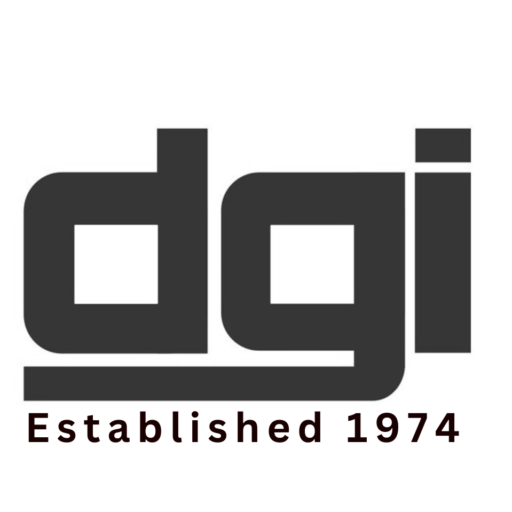DGI POLYURETHANE
1. Easy to use
2. Recoats – chemically bonds after full cure
3. High solid content – gives hardness & heavy build
4. Non-yellowing polyurethane
It is a unique, high-build, rapid curing protective coating that is specifically formulated to enhance the appearance of internal timber surfaces and to impart a degree of protection rarely achieved by similar coatings.
It is available in two gloss levels: matt (10%) and semi-gloss (25%) and is normally applied by spray gun. A brushing grade in similar gloss levels is also available for ‘in-situ’ work.
When adding to an existing installation, please be aware that the finishes may differ; at least in the levels of gloss.
For products finished at DGI, a semi-gloss level is used. We find this gives the best immediate results & most even finish. With time and the burnishing effect of cleaning, a higher level of gloss will develop. The patination is normal & attractive and cannot really be duplicated by spraying methods. A difference in perceived gloss levels can be expected, however, patination will develop within 4 to 6 months.
RECOATABILITY
Formulated so that it may be recoated in the future without having to strip back to bare timber.
REPAIRABILITY
Should the surface be damaged, repairs can be easily and quickly effected – new coats will chemically bond to the old.
RAPID DRYING
May be recoated in approx. 60-90 minutes.
LONG POT LIFE
When mixed, material pot life is 4-6 hours.
EASY MAINTENANCE
Simply wiping the surface with a damp cloth is all that is usually needed.
ABRASION RESISTANCE
Formulated to give toughness and durability. Will not chip, craze, peel or ‘cold check’.
HEAT STABILITY
Unaffected by boiling water or heated plates and is heat stable to approx. 400°F (200°C)
CHEMICAL RESISTANCE
Excellent resistance to beer, spirits, water, fats, detergents, perspiration and most household chemicals.
COLOUR STABILITY
When compared with many ‘clear’ coatings, yellowing is reduced to very low levels – even on pale timbers such as pine and ash which would ‘yellow’ naturally.
Maintenance
Cleaning – Normal maintenance consists of wiping down with a damp cloth. Detergents, cleansers (liquids such as ‘Handy Andy’, ‘Spray & Wipe’, etc) and other cleaning agents are all suitable. ‘Harsh’ cleansers such as ‘Ajax’ may also be used, although not on a regular basis and may effect gloss level. DGI GLULAM solid timber benchtops will readily take the punishment associated with day-to-day usage within the household environment. Products that should be avoided are those containing silicon compounds (such as ‘Mr Sheen’); silicon can imbed itself in the chemical structure of the polyurethane coating making subsequent recoating difficult.
Protection – Use cutting boards to avoid undue knife damage (any material will cut!), and under appliances such as electric jugs to avoid extremes of heat in small areas.
Repairs – Regardless of damage that may occur, repairs are relatively simple. Minor scratches can be buffed out with an abrasive polish or touched up.
If impact damage occurs (dents – where timber is compressed), this can be restored with a damp cloth and very hot iron. By placing the cloth over the dent and ironing over it, water vapour is forced into the fibres and the timber will ultimately restore itself to normal. Keep the cloth damp – a spluttering sound is normal
Hard Wearing – DGI GLULAM has been designed for use in kitchens, laboratories and other commercial applications; when coated with a two-pack polyurethane it has been tested for the following agents:
- Caustic Soda – oven cleaners – should not affect top.
- Hydrochloric Acid – cement cleaners – should not affect top.
- Kitchen Acids/Alkalis – juice/vinegar – should not affect top.
- Staining Agents – the only ones to avoid are beetroot and English mustard; these fiendish substances seem to stain everything known to man, but effect is minimal.
- Wines/Spirits – should not affect top.
- Heat – Tops have been tested to 200C; anything that contains water should not affect top. Tops will take much higher levels of heat for short periods (1/2 minute maximum). This allows time to put down a very hot item and retrieve again with an oven mitt.
Recoating – Your top will not require recoating for many years (dependant on wear and usage) and then only in the high-use areas. Recoating, which will restore your top to ‘as new’ condition, can be done by the householder (refinish packs are available from DGI) or by a professional. Ask DGI for a referral.
